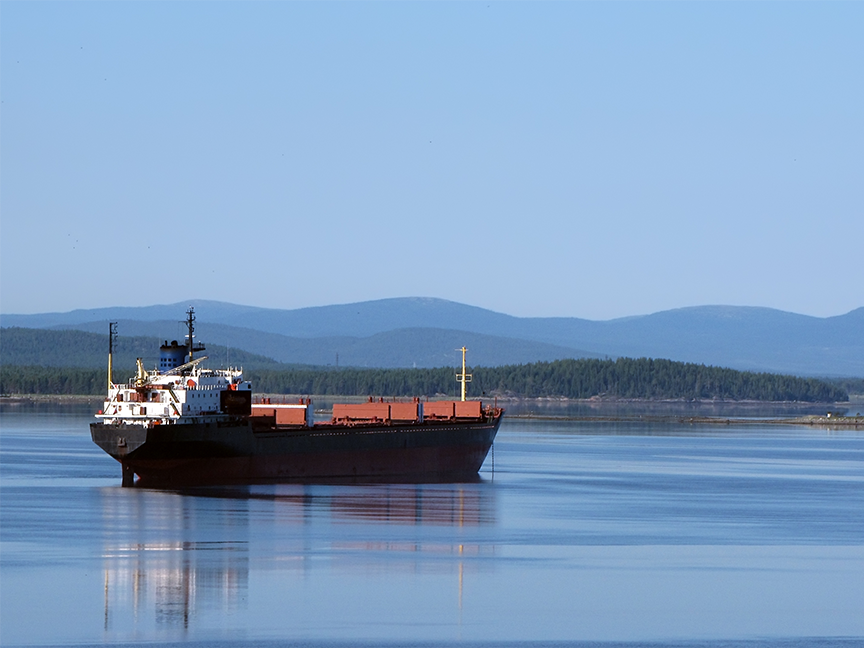
Think Tank
Are Your Exports Affected by Sanctions on Russia? It’s Not Always Easy to Tell

Sanctions imposed on Russia for its invasion of Ukraine are having an undeniable impact on global supply chains, but individual companies might have a hard time determining precisely how they’re affected.
It’s not a matter of simply banning any product or commodity moving in or out of Russia. The U.S. doesn’t have a full-scope embargo on trade with Russia, as it does with Cuba, North Korea, Iran and Syria, explains attorney Matthew Thomas, partner in the international trade practice of Blank Rome LLP. “The analysis has to be sophisticated when you’re looking at Russia trade,” he says. “It requires a layered approach to minimizing compliance risk.”
There are broad sectoral restrictions on U.S. trade with Russia, in areas such as professional services (accounting, management consulting and the like), imports of Russian energy products, and technology with military application. “Beyond that,” says Thomas, “you’re looking at a lot of screening.” An effective analysis must include every partner in the global supply chain, including sellers, buyers, banks and transportation and logistics providers. “Just figuring out who are the relevant parties can be “an extraordinarily challenging undertaking.”
Making the calculation especially difficult is a lack of transparency around Russian control or ownership of various businesses. There’s also the possibility of a product being sold initially to an authorized buyer, then ending up in the hands of a sanctioned party after multiple transactions downstream. That’s the kind of scenario that regimes such as the U.S. State Department’s International Traffic in Arms Regulations (ITAR) were set up expressly to prevent. The U.S. Commerce Department’s Export Administration Regulations (EAR) specifically list exports and reexports of parts, components and even “foreign-produced direct products” as being subject to the prohibitions. (Items subject to the EAR include nuclear materials, chemicals, electronics, computers, telecommunications equipment and other high-tech products.)
Exporters and service providers need to scrupulously address the risk that Russian involvement “may be lurking behind whatever transaction you’re engaging in,” says Rapa. “It calls for companies to engage in risk-based due diligence.”
If a company does display the required “reasonable diligence” measures, is it responsible when a product nevertheless ends up in the hands of a Russian entity? “That is perhaps the most frequently asked question in the sanctions world,” says Rapa. “The answer is that it’s not going to be very precise. It depends.” Sellers must take great care to determine whether their buyers practice the same level of diligence with regard to their own customers and counterparties.
Nor is the situation by any means static. New and tougher strictures on Russia are being imposed by the U.S. and its allies on a regular basis. What’s legal today might subject a company to heavy fines or even criminal prosecution tomorrow. “There are activities that remain permissible, but in some respects it’s a shrinking island,” says Anthony Rapa, partner and lead in Blank Rome’s national security team.
Among the major Russian targets of U.S. and European Union sanctions is the country’s banking sector. The goal is to bar Russia from access to foreign capital, by freezing accounts outside the country and preventing cross-border financial transactions. “The listing of most Russian banks as targets has made it exceedingly difficult for companies to do business in Russia, even if they’re not operating in a restricted sector,” says Rapa. “There are still some non-sanctioned retail banks operating in Russia, but the payment side is getting more difficult.”
Other areas singled out by the U.S. Treasury Department’s Office of Foreign Assets Control include electronics, marine services, aviation and aerospace. But the picture gets cloudier when it comes to taking action against secondary sources of goods and services to Russia. Thomas notes, for example, that the U.S. has a “pretty robust” suite of secondary sanctions on Iran — “measures that can be imposed on third countries as retaliation for a company engaging in significant transactions or providing support for Iran, aimed at non-U.S. persons.” Yet so far, he says, the U.S. hasn’t aggressively sought to deploy this approach with regard to Russia — in other words, it hasn’t threatened to punish countries in South America, Asia or the Middle East for continuing to deal with Russia.
The possibility of such drastic strictures coming into play is ever-present. “Could we get there in the months ahead?” asks Thomas. “Certainly. It’s evolving based on conditions on the ground.”






